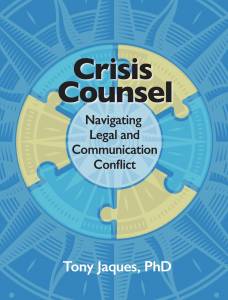Should top executives be penalized after a crisis?
by Tony Jaques, PhD
It’s human nature to demand that “heads should roll” when things go wrong. And politicians and business leaders have got used to pointless calls for them to resign after every minor problem. But what is the right response when an organisation gets into a real financial or environmental or reputational crisis? Should top executives be penalized after a crisis?
Two news reports last week highlighted different approaches to penalising senior executives in the face of organisational failure.
First, it was announced that Rio Tinto’s CEO Jean-Sebastien Jacques will lose $4.9 million in bonuses after the deliberate destruction of 46,000-year-old Aboriginal rock shelters in the Juukan Gorge to expand an iron-ore mine.
The same day also saw an announcement that AMP Chairman David Murray would lose his job entirely after mismanagement of a sexual harassment scandal.
Meantime, later this month Ardent Leisure is due to appear in court in Queensland for sentencing following four deaths on a water rapids ride at its Dreamworld theme park in late 2016. Although the company faces up to $4.5 million in fines, no individual executive is expected to face further penalty. The CEO at the time had to give away a controversial $167,500 bonus in the face of public outcry and eventually lost her job. However, she walked away with a $731,00 payout and was retained on a $3,000-a-day consultancy.
After Ardent pleaded guilty in July to three safety breaches, Sydney crisis expert Peter Wilkinson argued that for Dreamworld to rebuild its reputation needs a “serious fine or jail time” for some of the people responsible. “The public deserve to feel a person responsible has been punished,” he said. “At least for the families of the four people who died there is a feeling of closure. I think fining the company wasn’t really enough.”
Is a corporate fine – likely paid out of shareholder funds or insurance – enough? Is jail time appropriate? These are good questions, which are hard to answer.
Take the notorious 2001 collapse of HIH, at the time Australia’s second largest insurance company. CEO Ray Williams was sent to prison, even though the subsequent Royal Commission found he did not seek nor gain any financial advantage for his business mistakes, nor was his criminal negligence the result of any deliberate deception (unlike two others involved in the disaster who were jailed for dishonesty).
Penalizing Executives After A Crisis
Does sending an executive to prison after a corporate crisis – or allowing a CEO to resign with a handsome payout – deliver any meaningful result? While it might “avoid distraction” – as companies under pressure love to say – does it actually lead to any real change in culture or reputation?
Consider the Australian financial industry whose bad behaviour was brutally exposed by the Banking Royal Commission in 2018-2019. Three of the four CEOs of the Big Four banks stepped down, and literally hundreds of managers were purged. Yet does anyone believe the financial sector has undergone any kind of cultural transformation?
In the case of wealth-manager AMP, the Chair and CEO both resigned in the wake of the Royal Commission, yet just 16 months later the new Chair has now fallen on his sword in another reputational crisis. As Hannah Piterman observed in The Conversation: “It will take more than his exit to change the company.”
Although a term in prison might make sense where a crime has been committed, in most cases it’s ethical standards and the “social licence to operate” which has been breached. But whatever the circumstances, it surely is clear that Boards are struggling to deal with community expectations in deciding how and whether to penalize executives after a crisis.
A Parting Thought
Tell the truth, because sooner or later the public will find out anyway. And if the public doesn’t like what you are doing, change your policies and bring them into line with what people want. — Ivy Lee
Tony Jaques is Director of Issue Outcomes Pty Ltd, for people who work in issue and crisis management.

